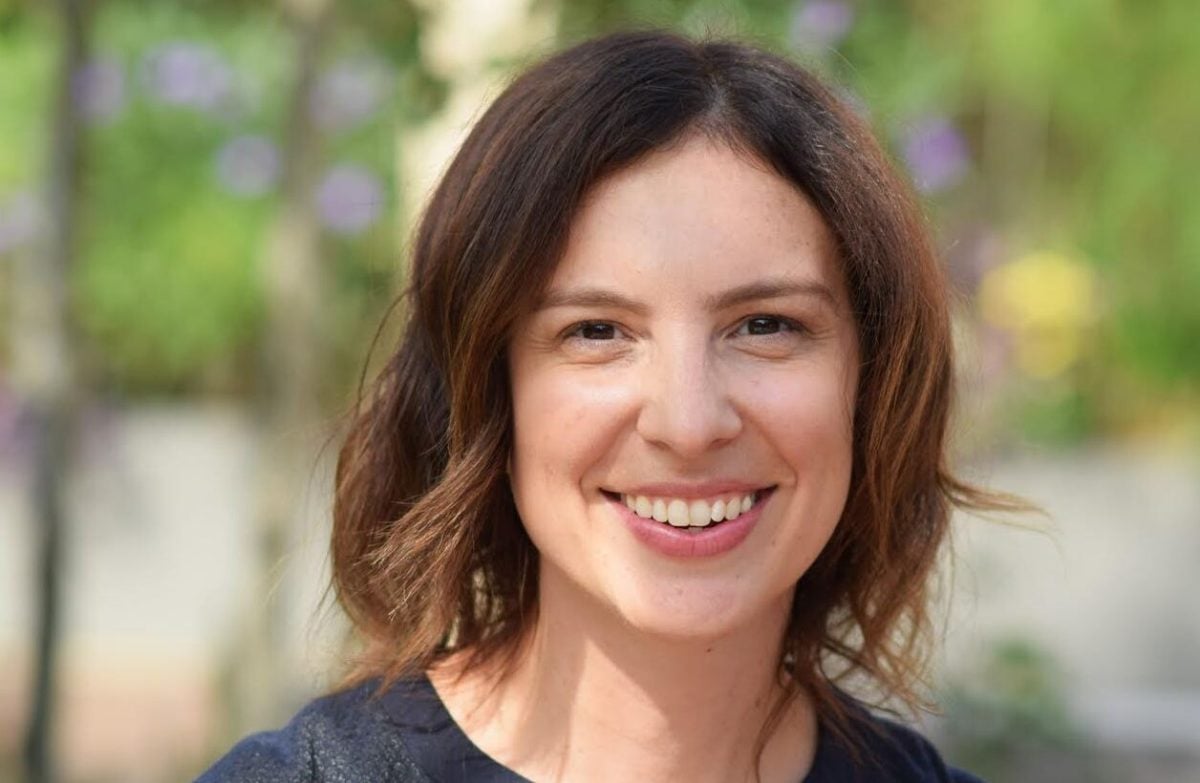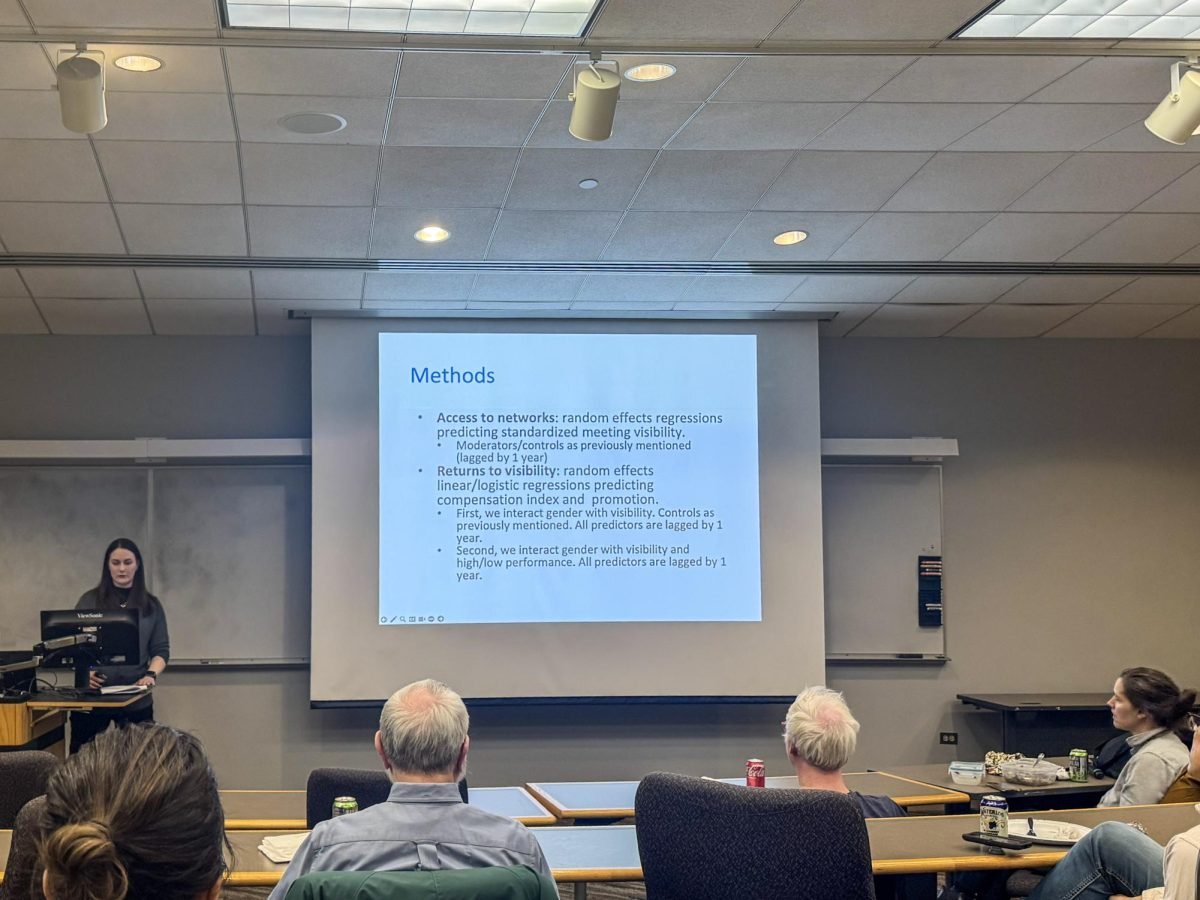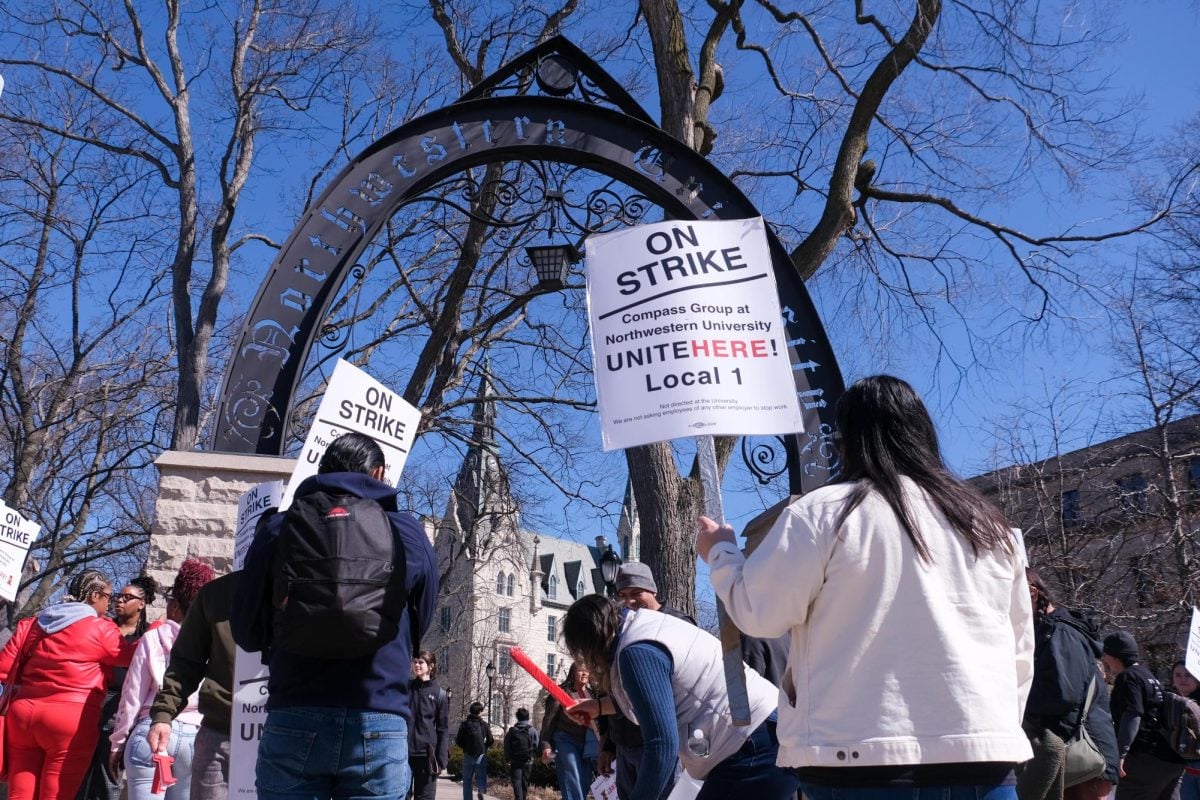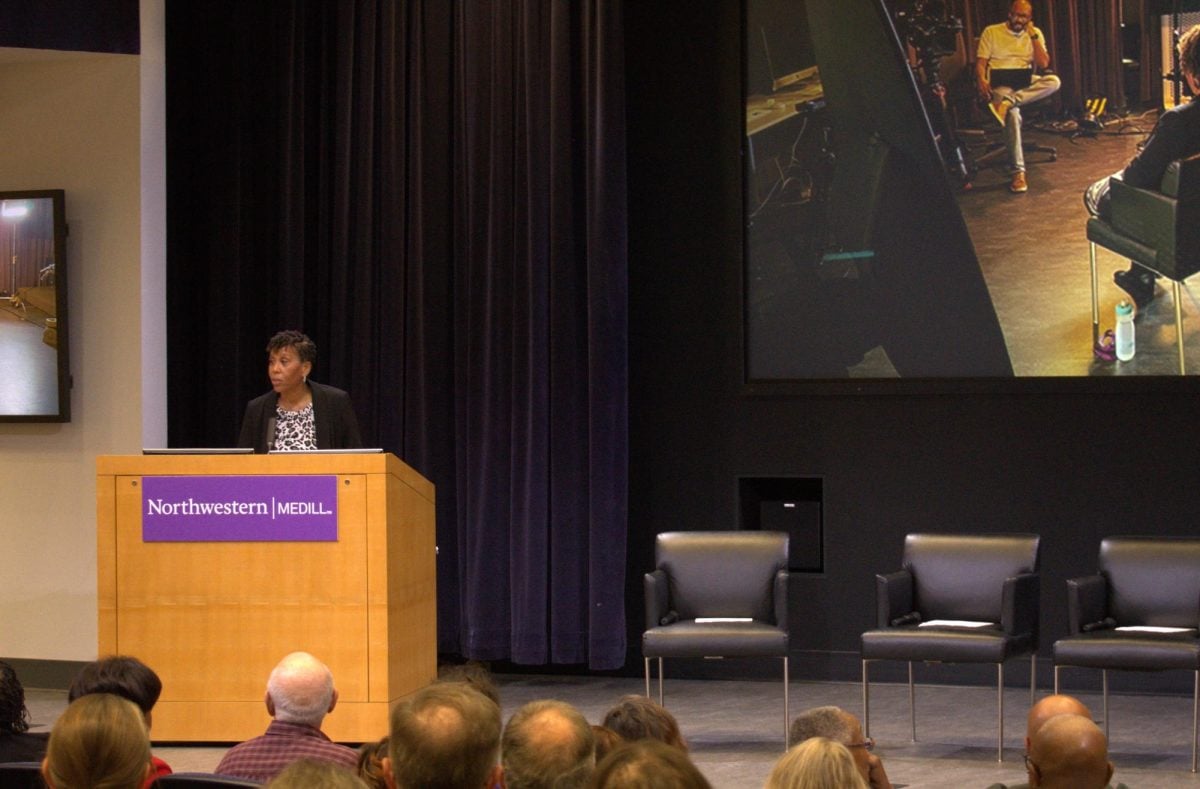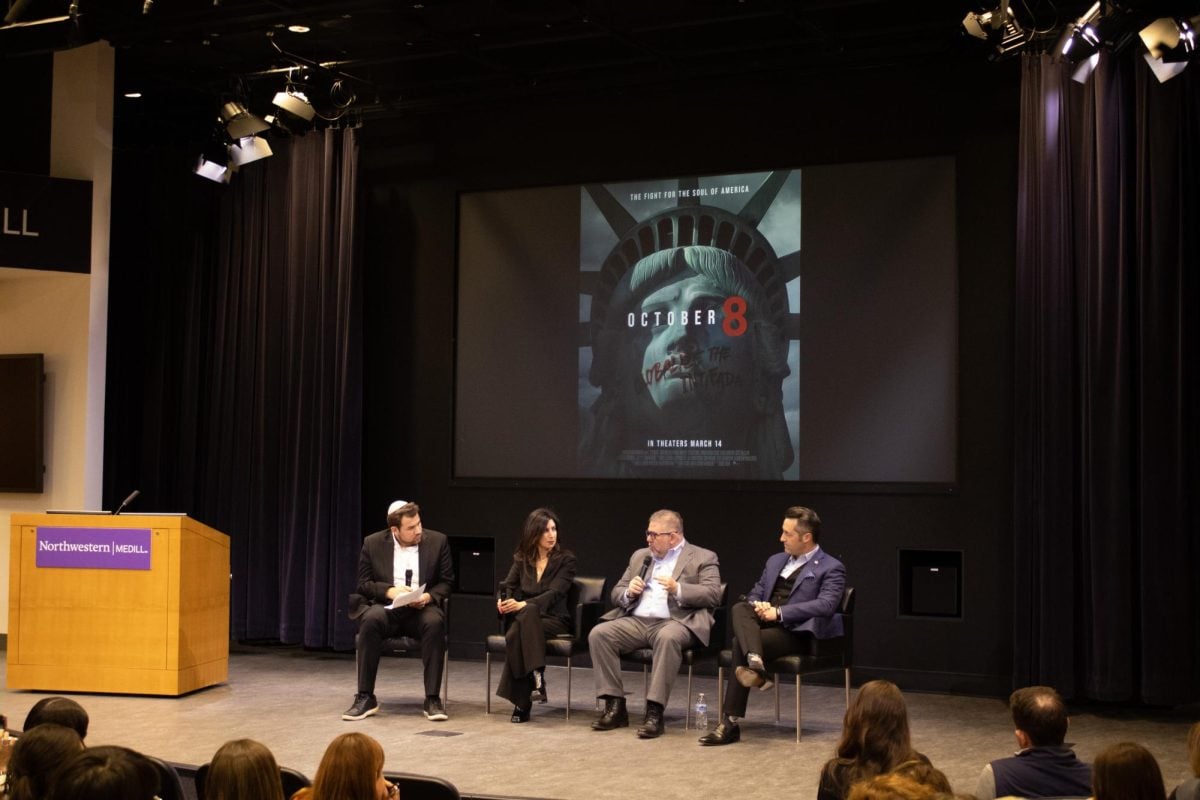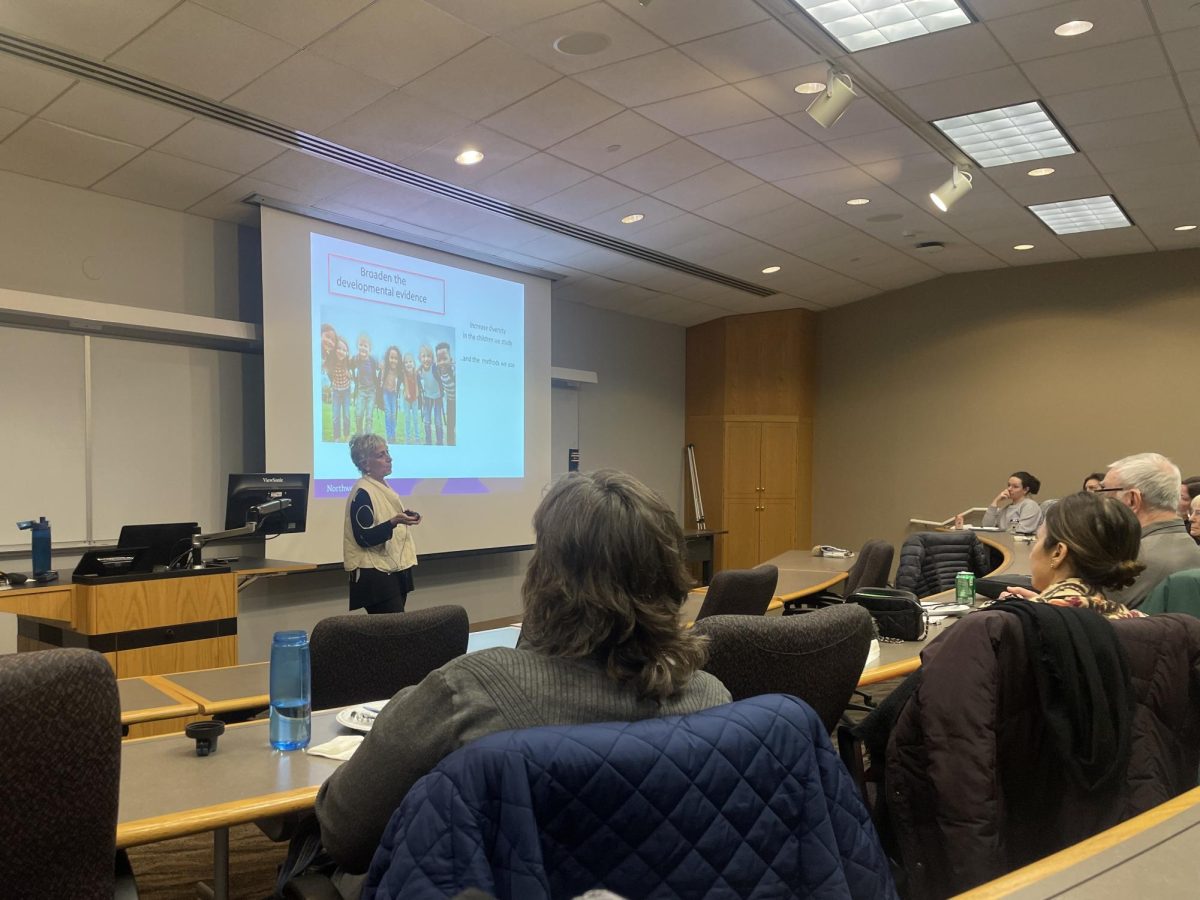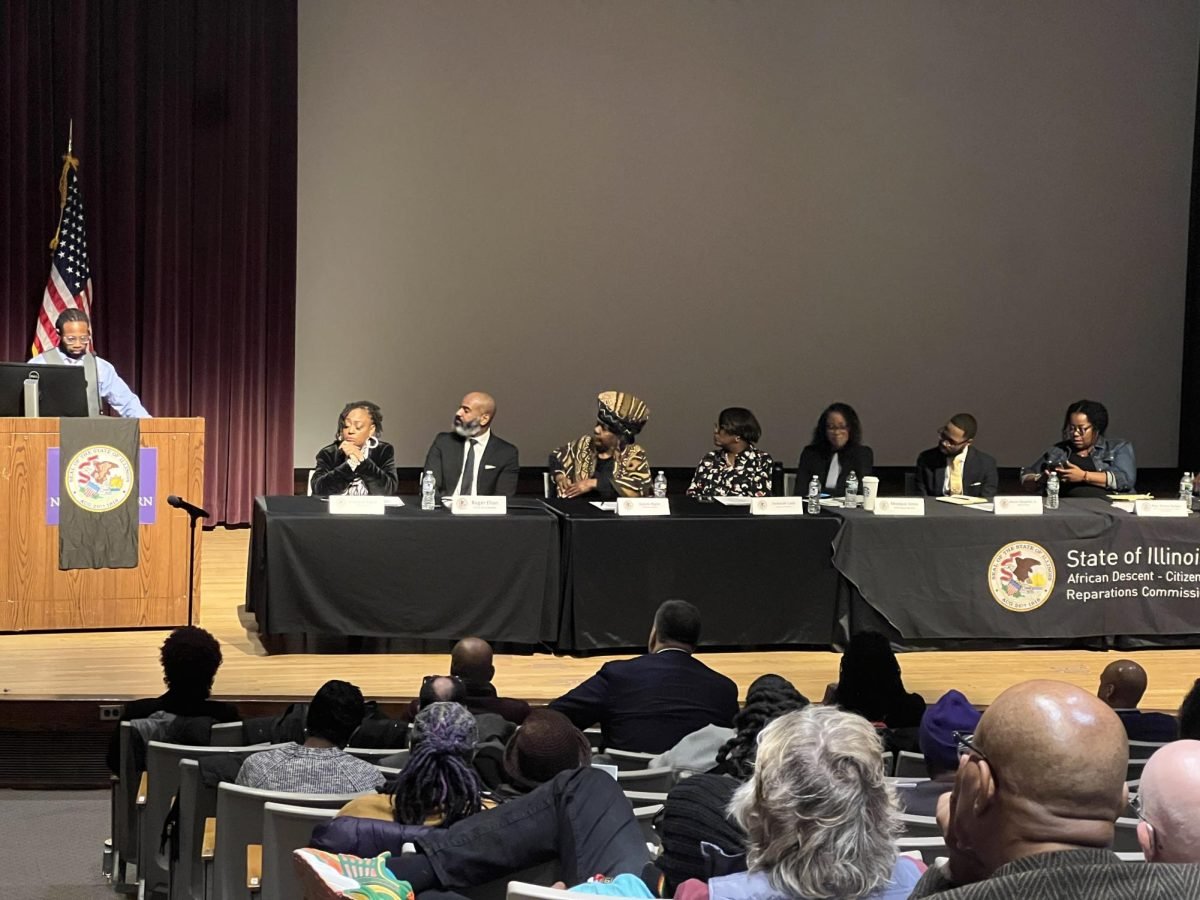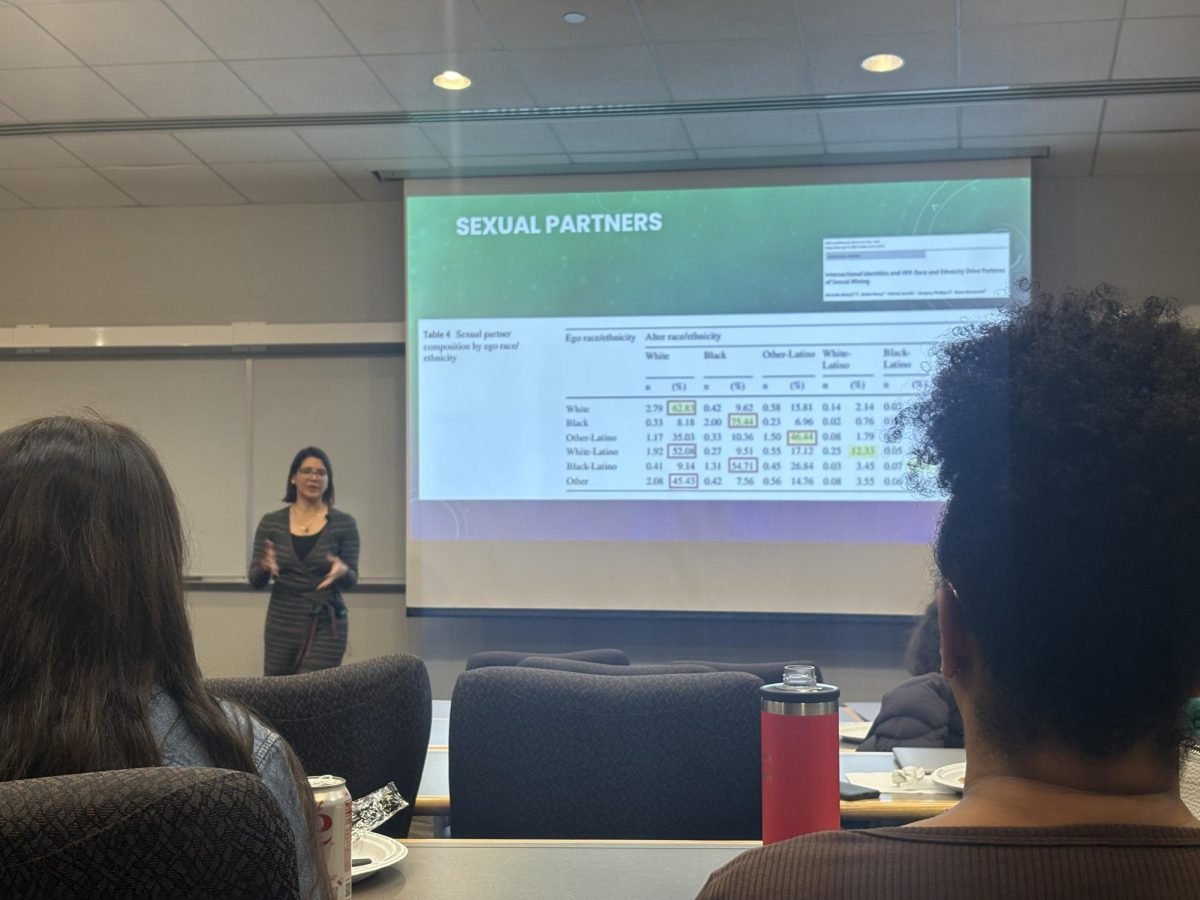International journalists Marzio Mian and Alessandro Cosmelli discussed on Friday their recent work reporting along the Volga River in Russia, which produced a cover story for Harper’s Magazine called “Behind the New Iron Curtain.”
The event, co-hosted by The Buffett Institute for Global Affairs and the Pulitzer Center on Crisis Reporting, included a short screening of Mian and Cosmelli’s documentary-style film, followed by a conversation with the moderator, Northwestern’s Ambassador in Residence Ian Kelly.
“The article in Harper’s was probably the most valuable article in terms of me trying to understand what is happening in Russia,” Kelly said.
Mian said the duo set out along the Volga River because they believe it reflects the history, identity and economy of Russia.
He added that they aimed to capture public opinion and daily life in Russia under President Vladimir Putin’s regime, much of which has been a mystery to the world since the 1930s.
“It was just an amazing opportunity to be the only ones there,” Mian said. “It was just like traveling to a different planet. It feels like being the first Westerner to visit Russia.”
Journalists are scarce in modern day Russia, which is one of the most dangerous places in the world to report, according to Reporters Without Borders.
Because of the crackdown on journalists in Russia, the team was unable to travel on journalist visas. They weres instead granted business visas, and they endured an almost constant state of paranoia during their travels, Mian said.
“For one month, more or less, we never separated for one minute. We were always together,” Mian said. “We were looking around all the time, looking if somebody was following us. It was so very stressing.”
In order to best protect themselves, the journalists said they worked to be as discreet and as professional as possible, maintaining a low profile when they could.
They also worked with a fixer knowledgeable about the culture of the destination country in order to minimize cultural transgressions.
“The important thing was to be as discreet as possible, more invisible as possible because we knew we weren’t very much welcome,” Cosmelli said. “We got in, and we found an apparently normal situation, but it was very much on the surface, of course, because we knew we might have been followed. We might have been controlled.”
Despite their fears, the duo said they felt it was important for them to capture daily life in Russia for a U.S. audience.
One of the main themes of the project was capturing nostalgia for the past and comparing it to the state of life in Russia today.
“Nostalgia means many things, and having nostalgia for the Soviet Union means many things. For common people, or old people, it means a time of stability and their time of greatness,” Mian said.
Throughout the reporting process, Cosmelli said it was crucial to keep an open mind as the story developed.
“The story unfolds every hour, every minute, so you need to be really very open and ready to catch all you can catch,” Cosmelli said. “You have to put yourself in the story.”
Email: leahschroeder2026@u.northwestern.edu
Twitter: @lmschroeder_
Related Stories:
— Buffett Institute hosts lecture with former president of the International Criminal Court





